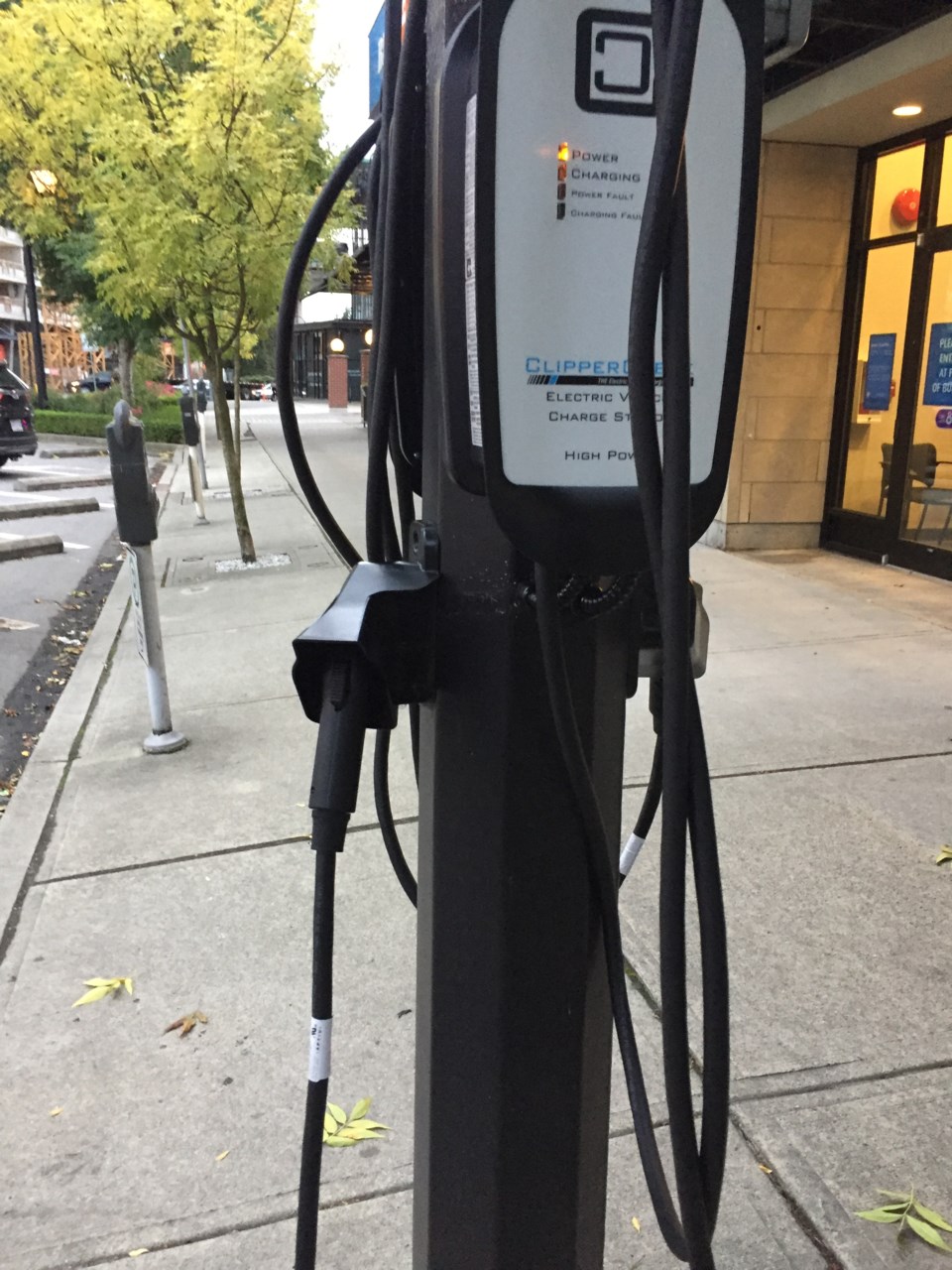New developments in New Westminster will soon be required to include electrical vehicle charging infrastructure.
Following a public hearing on Monday night, city council supported a zoning amendment bylaw that would require new residential buildings to require a Level 2 (208 to 240 volt) energized outlet for all new residential parking spaces, excluding visitor spaces. The bylaw takes effect April 1, 2019.
In addition, the city will also require all new commercial and institutional buildings with 10 or more parking spaces to provide 10 per cent of these spaces with access to a Level 2 outlet.
“I think this is definitely a step in the right direction,” said Mayor Jonathan Cote. “The reality is, when you own an electric vehicle, the vast majority of your charging happens at home. In a single-family neighbourhood, that’s usually quite easy to accommodate but in many multi-family buildings it is actually very difficult. Given that in the City of New Westminster a large number of our residential units are multi-family units, I think it’s important that we get ready. Really, the shift toward the electrification of our vehicles is actually going to be a trend that is going to increase significantly over the next number of years.”
According to a staff report, sales of plug-in electric vehicles have increased in the past three years and represent 1.5 to two per cent of new car sales in B.C., with demand for some models exceeding supply at local dealerships. It’s projected that electric vehicles will represent five to 20 per cent of all vehicle sales by 2024, 25 per cent by 2030 and 50 per cent by 2040.
If residential units aren’t able to accommodate electric vehicles, Cote said that will limit the number of people who buy electric vehicles and will cause issues in the city.
A staff report states that access to charging at home or work is a key factor in people’s decision to purchase an electric vehicle, so equipping new residential buildings with the capacity for electric vehicle charging is key in the transition toward zero-emission vehicles in New Westminster. The report states it’s much more cost effective to provide electric vehicle charging capability at the time of construction, rather than retrofitting buildings post-construction.
“This bears itself out in terms of the challenges experienced by local residents within existing strata condominium buildings that have purchased an electric vehicle, but cannot convince their strata council to allow for necessary EV charging wiring and equipment at their parking stall, even when the owner has agreed to cover the full cost of equipment and electrical connection,” said the report. “For these residents, the only option for charging their vehicle is a limited number of public charging sites in the city.”
Coun. Chuck Puchmayr, who owns an electric vehicle, said the initiative will help take vehicles using fossil fuels off the road.
“This is absolutely great news. I would like to have seen it a little bit sooner, but it is now becoming law,” he said. “It doesn’t address the issue of EV charging retrofits. I know that staff has talked about working with the community to see how we are able to assist in designing and developing something that may work with pre-existing buildings, but this as a go-forward is an absolute great idea.”



